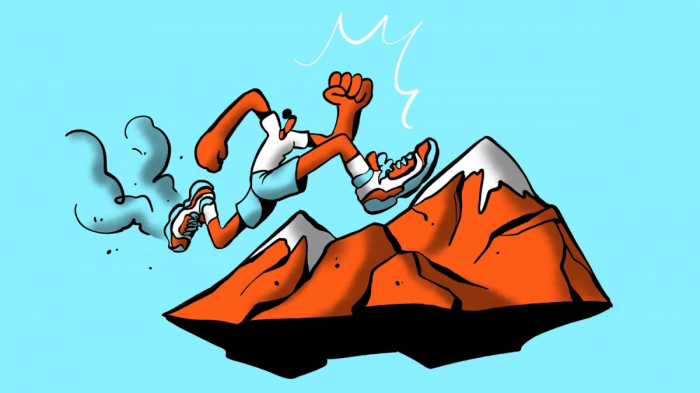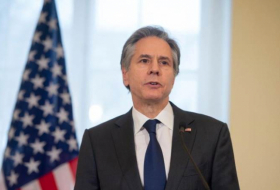Your get-up-and-go has tanked as the pandemic has dragged on. But there are ways to kickstart your motivation – even when it seems like you’ve tried everything.
Early on, a friend of mine likened the pandemic to enduring a long-haul flight. Another compared it to running a marathon. Whatever the analogy, the message was the same: just keep our heads down and tough out the Covid-19 era because, at some point, it will end.
But although we have faith that the finish line is somewhere out there, the ‘where’ is not exactly clear. Our lives remain in limbo. And while early on in the pandemic, many people found a special spark to learn languages, bake or embrace home exercise, that self-starting energy has long worn off for most. Nothing’s changed for a year, we have no control over when it will – and we’ve hit a motivational wall.
Yet we still need to peel ourselves off the couch to get things done. Even when it seems like you’ve tried everything to find your get-up-and-go, there are still ways to replenish what little is left in our motivational tanks.
Beating the ‘blah’ feeling
In simple terms, motivation relates to our desire to initiate action to obtain something or avoid something negative. When you take action to obtain, you end up with a reward, which can be “intrinsic” (like the joy of helping someone in need or finding meaningful job satisfaction) or “extrinsic” (like money or a material prize). Some scientists believe that intrinsic motivation dips when key aspects – autonomy, competence and relationships – suffer, something also known as ‘self-determination theory’.
The pandemic is affecting all three of these key aspects. Covid-19 has left us with less control over our daily lives; job loss or the inability to work effectively is affecting our sense of competence; and social distancing and lockdown are serious relationship strains.
And, as we struggle, looking for the silver lining isn't always as helpful as it may seem. “Hope and the desire for positive change help us keep looking forward, but we can also trick ourselves into thinking that things could change very quickly,” says Lynn Bufka, a senior director at the American Psychological Association. In other words, we can try to seek positivity about the future, but may set ourselves up for disappointment when the hopes don't come to fruition.
So, Bufka says we need to “shift the situation we’re in” and look for places where we have control – however small. “Mask-wearing is going to be with us for a while – and my husband and I were joking, ‘you know, it’s not so bad when it’s cold’. Not only am I reducing my risk, but my face is a little warmer. So, make sure your mask is comfortable. This may sound silly and ridiculous. [But] it’s something you have control over.”
The power of ‘small wins’ has long been linked to increased motivation. She explains that they remind us that we can act on our own free will, that we have mastery over some challenges and that we can push back on the inner monologue that tends toward defeated, negative thinking.
Changes to spice up your routine – however tiny – can help, too. “You could cook something new for dinner, walk around a new neighbourhood, or start learning something new like a foreign language,” says Elizabeth Grace Saunders, an author and time-management coach. “Even small changes can give you a sense that you are doing things you enjoy and that your needs matter.”
Zero in on obstacles
Gabriele Oettingen, professor of psychology at New York University, says there are ways to combat ennui by picking something you want to achieve and identifying the obstacle standing in your way. Obviously, the pandemic is a substantial obstacle to many of our goals and aspirations, but Oettingen says how we respond to it is up to us. “You cannot do anything about the big picture, but you can fill your time in a purposeful way,” she says.
She’s the creator of the ‘WOOP’ method: a motivational technique that stands for Wish, Outcome, Obstacle, Plan. You think up a ‘wish’ you want to achieve, imagine the outcome, identify the obstacle and then come up with a plan.
For example, my fitness level has plummeted during the pandemic, so my wish is to start jogging for 30 minutes every day. That’s because I know the outcome will be that I’ll feel better, healthier and more relaxed after doing it. The obstacle that stands in my way is my sense that it’s easy to feel like nothing matters – why bother doing something as normal as exercise? Nothing is normal right now: I spend 10 hours a day in front of a screen by myself in my apartment because we’re not supposed to leave home. I may as well just stay inside and binge more Netflix.
In order to formulate that final plan, Oettingen advised me to think about what makes me feel better when that obstacle appears, which is calling friends and loved ones – something that anchors me, gets me out of my head and reminds me that life will one day be normal again. Ultimately, Oettingen helped me turn that desire to connect with others into an actionable motivator: by putting on my trainers and joining all of the people I see jogging out my window, I’m participating in an activity that feels communal, shared and that involves other people.
“We need to search” for ways to remove our motivation roadblocks, she says, since the things we want to do ultimately originate from important things we need. (For the record, I did go outside for exercise afterwards.)
That’s why Oettingen stresses that focusing on the obstacle is the most important step in refilling your motivation reserves – not wishfully thinking about the beneficial outcome. Instead, be as specific as possible about what stands in your way – really reflect on your emotions, and then sum up the obstacle in three to four words. That’s what will truly give you a game plan to do what you want to do.
Connect with community
Experts also point to a surprising way to find motivation in this final stretch: focus less on yourself, and more on others.
“The sense of ‘common fate’, as in the case of shared crises or challenges, can draw people together. This increase in social support can help people cope,” says Steven Taylor, professor of psychiatry at the University of British Columbia and the author of The Psychology of Pandemics.
People are more likely to be motivated to do things they really don’t want to do in the pandemic if it is framed as for the public good
Bufka suggests we ask ourselves whether there’s anything we could be doing for someone in our network who might be struggling, like bringing a friend a boxed dinner. This might sound tough when you barely have the drive to roll yourself off the sofa. But studies show that if we do something for others – instead of ourselves – we’re more likely to be engaged, pursue the task more and commit more, she explains.
In fact, studies have shown that people are more likely to be motivated to do things they really don’t want to do in the pandemic if it is framed as for the public good. Pre-Covid-19 studies also show that people work harder when intrinsically motivated by a social cause or believe they are acting in the public interest. This can be harnessed: while you might want to work out at a gym, like you would pre-pandemic, if you think about the risks to you and other people of gyms being open, you might be more motivated to do yoga at home instead.
Jump-starting our motivation is hard. It might take some soul-searching to figure out what specifically about the pandemic is making us feel listless. But the rewards of restoring some of those pre-pandemic motivation reserves are worth it: we’re happier and more productive.
“If we’re able to sort of shift and be more flexible about how we think about something and how we appraise it, and shift from seeing everything as a negative – ‘Why is this happening to me?’ – to opportunity, growth, challenges to address that, [this] serves us not only now, but as we move forward, too," Bufka says.
BBC
More about:
















































